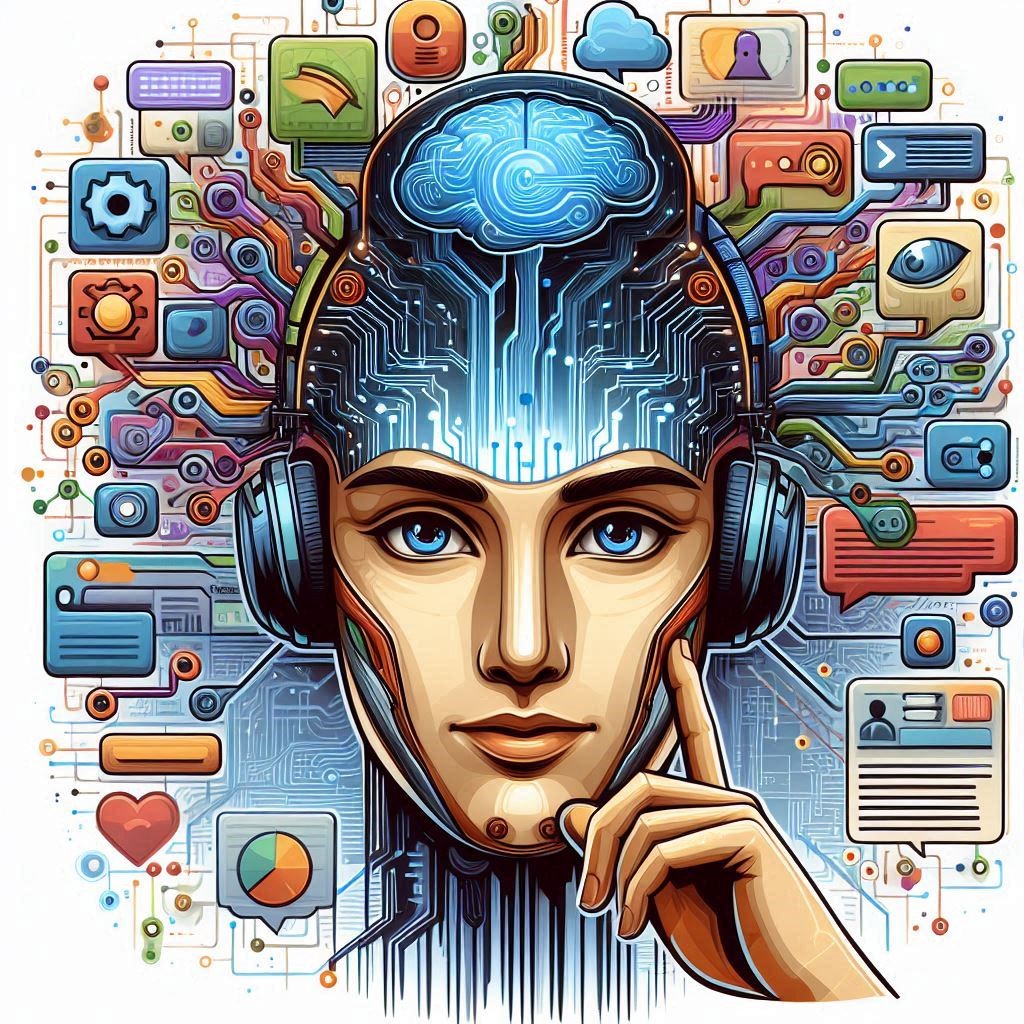Agnostic AI: The Future of Chatbots
Introduction
Agnaistic ai. Chatbots have come a long way from their early days of simple responses and limited functionality. Today, they are integral to businesses, enhancing customer interactions and streamlining processes. As companies increasingly rely on these digital assistants, the demand for smarter, more adaptable solutions has surged. Enter agnostic AI—a revolutionary approach that allows chatbots to integrate seamlessly across various platforms without being tied down by specific frameworks or technologies.
Imagine a world where your chatbot can effortlessly switch between applications, learning from each interaction while providing consistent support regardless of the environment. This is not just a futuristic vision; it’s becoming a reality with agnostic AI. It opens up endless possibilities for improving user experience and driving efficiency in communication.
As we explore this innovative technology further, it’s clear that agnostic AI could redefine how we think about chatbots and their roles in our daily lives. Buckle up as we delve into the future of chatbots powered by this groundbreaking approach!
What is Agnostic AI?
Agnostic AI is a revolutionary approach to artificial intelligence that prioritizes flexibility and adaptability. Unlike traditional AI systems, which are often tailored for specific platforms or tasks, agnostic AI can seamlessly operate across various environments.
This technology allows businesses to integrate chatbots into diverse applications without being tied down by proprietary constraints. Whether it’s customer service, sales support, or information retrieval, agnostic AI offers solutions that cater to multiple needs.
Developers appreciate its versatility. They can create and deploy chatbots that function equally well on websites, mobile apps, and social media channels. This cross-platform functionality enhances user experience and engagement.
Furthermore, the agnostic nature of this AI means it continually evolves based on real-time data inputs from different sources. As industries change and grow, so too does the capability of these intelligent systems.
Benefits of Agnostic AI in Chatbots
Agnostic AI brings a range of benefits to the world of chatbots. First and foremost, it enhances adaptability. Chatbots powered by agnostic AI can seamlessly integrate with various platforms and technologies. This means businesses don’t have to worry about being locked into a specific ecosystem.
Scalability is another significant advantage. As companies grow, their chatbot needs may evolve. Agnostic AI allows for easy updates and expansions without starting from scratch.
Moreover, users experience improved interactions. The flexibility of agnostic systems enables them to learn from diverse datasets. Consequently, this leads to more accurate responses tailored to individual user preferences.
Cost-effectiveness stands out as a key benefit too. With agnostic solutions, organizations save time and resources while still achieving high-quality performance in their chatbots’ capabilities.
Examples of Companies using Agnostic AI
Several companies are leading the way in utilizing agnostic AI for their chatbot solutions. Microsoft, with its Azure Bot Service, enables businesses to develop chatbots across various platforms without being locked into a single ecosystem.
Another notable example is Drift. This company leverages agnostic AI to enhance customer interactions on multiple channels, providing seamless communication regardless of where users engage.
Zendesk also embraces this technology by integrating it within their support systems. Their approach allows for tailored experiences that adapt based on user preferences and behaviors.
IBM Watson has made significant strides in implementing agnostic AI within its suite of cloud services. By doing so, it empowers organizations to deploy chatbots that can function across diverse environments while maintaining consistent performance.
These examples highlight the versatility and potential of agnostic AI in transforming customer interactions through intelligent chatbots.
Challenges and Limitations of Agnostic AI in Chatbots
While agnostic AI offers remarkable potential, it is not without challenges. One significant hurdle is the integration with existing systems. Many businesses rely on legacy software that can complicate compatibility.
Another limitation lies in data privacy and security. With multiple platforms involved, ensuring user information remains protected becomes increasingly complex. This raises concerns among users wary of sharing personal data.
Moreover, training an agnostic chatbot demands vast amounts of diverse data. Gathering such datasets poses logistical challenges for organizations lacking resources or expertise.
Natural language understanding varies widely across languages and dialects. This inconsistency can lead to misunderstandings or miscommunications within chat interactions, affecting overall user satisfaction. Each of these factors must be considered as companies explore the possibilities offered by agnostic in their chatbot solutions.
Future Applications and Possibilities
The landscape of agnostic AI in chatbots is brimming with potential. Imagine virtual assistants that adapt to individual user preferences with seamless ease. This could revolutionize customer service, making interactions feel more personal and engaging.
Education stands to gain immensely too. Customized learning experiences powered by agnostic can cater to diverse student needs, enhancing engagement and retention rates.
In healthcare, chatbots might analyze patient histories across different systems—providing tailored advice or support based on comprehensive data insights.
Moreover, businesses may integrate these advanced chatbots into IoT devices for smart home assistance or real-time updates on various services.
As technology evolves, the boundaries of what’s possible will expand further. The future looks bright for organizations ready to harness the full capabilities of agnostic -driven solutions.
The Ethical Debate Surrounding Agnostic AI
The rise of agnostic AI prompts important ethical questions. This technology, designed to operate seamlessly across various platforms, can blur the lines between human and machine interactions.
One major concern is data privacy. As chatbots become more sophisticated, they gather immense amounts of personal information. Users often remain unaware of how their data is used or stored.
Another issue stems from accountability. If an agnostic makes a mistake—offering incorrect advice or misleading information—who takes responsibility? The creators? The platform hosting it?
There’s the potential for bias in responses. If not managed properly, these systems may inadvertently perpetuate stereotypes or misinformation based on the training data they receive.
Navigating these complexities will be essential as we embrace this innovative technology and its capabilities.

Conclusion: The Role of Agnostic AI in Shaping the Future of Chatbots
Agnostic AI is paving the way for a new era in chatbot technology. By enabling chatbots to leverage multiple frameworks and platforms, businesses can create more flexible, responsive systems that truly understand user needs. This adaptability ensures that companies remain competitive in an ever-evolving digital landscape.
As organizations increasingly rely on chatbots for customer service, sales support, and even mental health interventions, agnostic offers the versatility required to enhance these interactions. It allows developers to focus on creating enriched user experiences rather than being confined by specific tools or technologies.
Moreover, as ethical considerations surrounding artificial intelligence continue to gain momentum, agnostic presents opportunities for responsible innovation. The ability to integrate diverse perspectives and solutions can help address critical issues like bias and data privacy.
The future of chatbots lies in their capacity to evolve with user demands while maintaining high standards of ethics and security. Agnostic stands at the forefront of this transformation—shaping how we interact with machines today and tomorrow. As we navigate this exciting landscape together, it will be fascinating to watch how agnostic unfolds its potential across various sectors.







